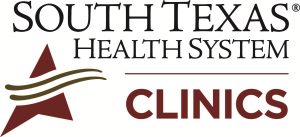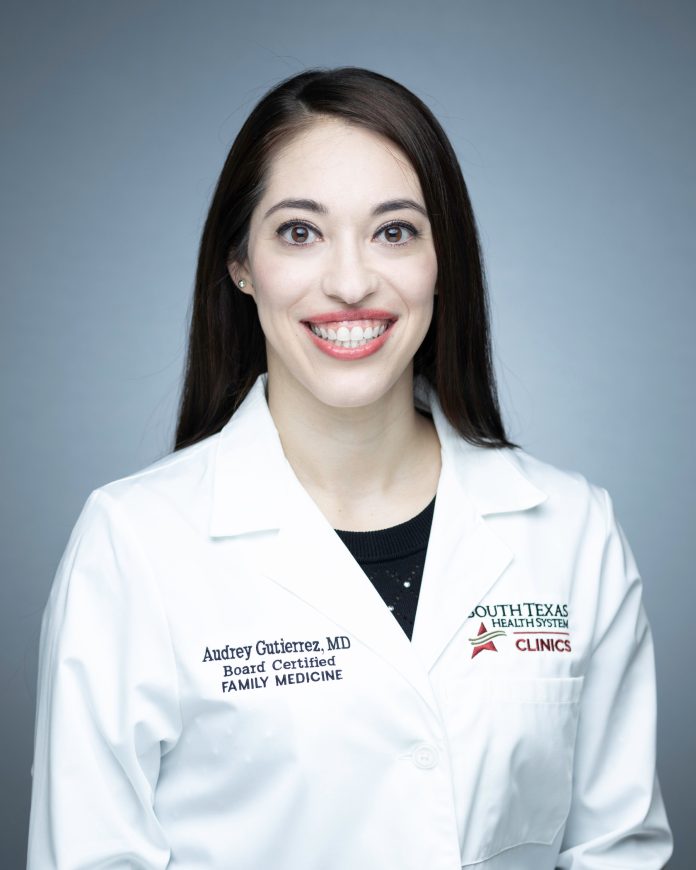Say Goodbye to Sneezing and Sniffling with These Doctor-Recommended Strategies
Audrey Gutierrez, MD,
is board certified in family medicine and certified in advanced cardiac life support. At South Texas Health System® Clinics’ Palmhurst location, Dr. Gutierrez provides services that include annual check-ups, minor surgeries, women’s health services and more. She is a graduate of The University of Texas Medical Branch in Galveston and served as co-chief resident of the family medicine residency at CHRISTUS Santa Rosa Health System in San Antonio.
Below, Dr. Gutierrez answers some commonly asked questions about seasonal allergies and provides practical tips to help you breathe easier and enjoy the season.
Q. What causes seasonal allergies?
A. If you’re among the 15 to 25 percent of people who suffer from seasonal allergies, you probably use allergy products to relieve your symptoms, but you may not realize why you even have them. I often see patients who suffer from a range of symptoms such as sneezing, runny nose, itchy eyes and congestion.
Here’s what you need to know: Allergies are a result of an inappropriate immune response. It occurs when your body’s immune system overreacts to allergens such as pollen, mold, and dust mites. When these allergens enter the body, your immune system produces histamine, a chemical that causes inflammation and triggers allergy symptoms. Your body thinks pollen, for instance, is the enemy and throws up a defense, such as the runny nose and watery eyes. Those mechanisms are intended to help rinse pollen away.
Q. What are some specific allergy triggers?
A. Different allergens are present at different times of the year. In early spring, we have tree pollens; late spring has grass pollens and weeds; in mid-August, ragweed blooms; and later in autumn, leaf molds are the culprit for some sufferers. Indoor allergens, such as animal danders and dust mites, can cause year-round symptoms.
Q. How can I get relief from everyday allergies?
A. First, I recommend that you speak to your doctor to discuss the treatment options that are right for you. While there are several available, they can best be explored with proper oversight and care from your primary care physician.
The general treatment principle is to manage your symptoms. Once-a-day antihistamines or cortisone and antihistamine nasal sprays can be good choices to help alleviate symptoms. Saline nasal sprays or rinses can help wash pollen from the nasal passages. If your eyes are itchy and watery, a prescription or non-prescription eye drop may be helpful.
You may also want to consider allergy testing and immunotherapy. Your doctor can refer you to an allergist who makes up a custom mixture based on your test results and starts giving shots in little doses and gradually increases the dose over time. Allergy shots like these can be effective, but since it takes time for the body to build up immunity, it may take longer to see relief.
Q. Are there other things I can do to help manage my symptoms?
A. In addition to medication, there are also several lifestyle changes that can help reduce the severity of seasonal allergy symptoms. These can include things like:
• Keep windows closed to prevent pollen from getting inside. Use air conditioning when possible.
• Wipe away dust. Use a damp cloth when dusting to prevent spreading it around.
• After spending time outdoors, shower and change into clean clothing.
• Prevent medication interactions. Some nasal sprays and decongestants can interfere with other drugs you may be taking, so always check with your doctor before using them.
• Pollen counts are usually highest in morning, so, if possible, stay inside until the afternoon.
Seasonal allergies can be a frustrating and uncomfortable condition, but you don’t have to suffer through the season. By understanding the causes of seasonal allergies and taking steps to manage symptoms, you can enjoy the outdoors and breathe easier all year long.
Audrey Gutierrez, MD
Family Medicine
300 E. Mile 3 Road | Suite 170 | Palmhurst, TX 78573
TO MAKE AN APPOINTMENT: Schedule online at sthsclinics.com or call 956-997-3344
Virtual Visits Available | Walk-ins Welcome
Accepts Medicare, Medicaid and most medical insurance plans

For language assistance, disability accommodations and the nondiscrimination notice, visit our website.





